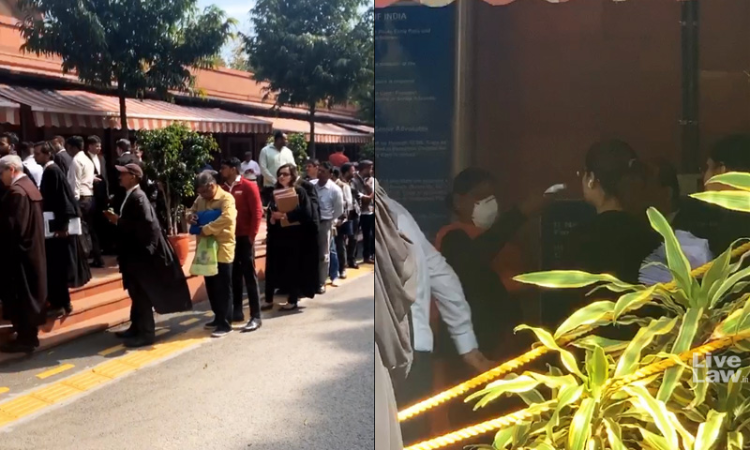COVID 19 : Entrants To Supreme Court Undergo Thermal Screening, Sign Declaratory Forms
Radhika Roy
16 March 2020 12:45 PM IST

Next Story
16 March 2020 12:45 PM IST
Amidst the Coronavirus scare and directions issued by the SCBA and SCAORA in pursuance of the advisory circulated by the Health Ministry, the Supreme Court has installed thermal-screening, hand sanitiser stations and has employed limited functioning of the Court. On Sunday evening, an urgent meeting was called by Chief Justice of India S.A. Bobde to discuss the functioning of the Courts in...
